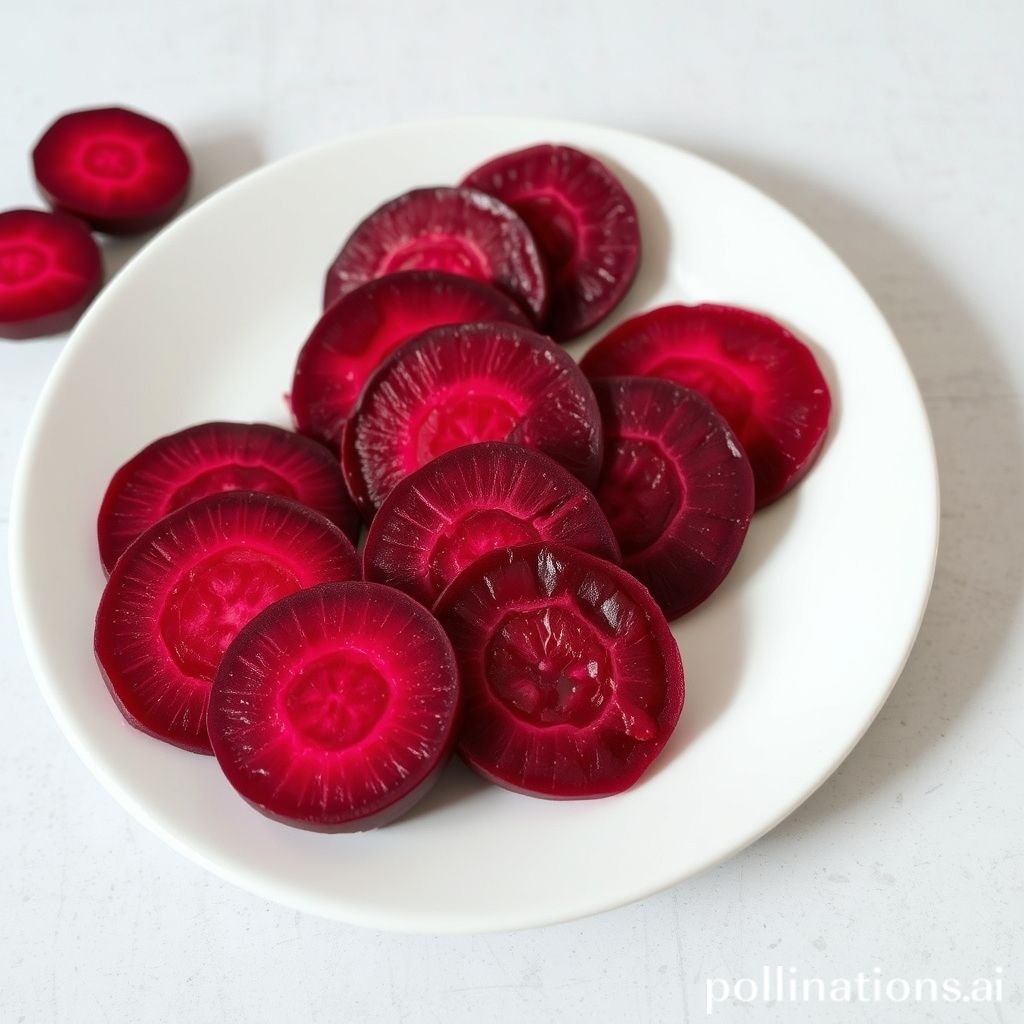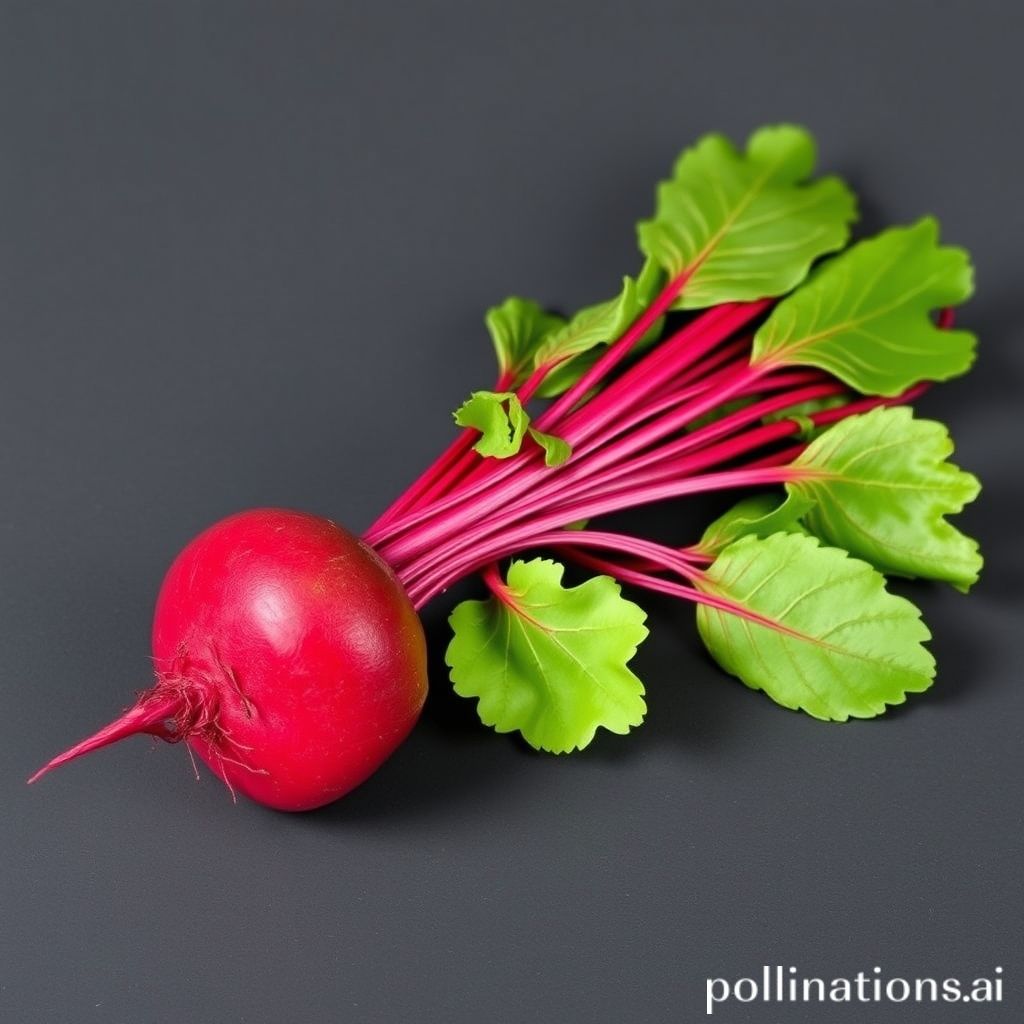Who Should Not Eat Raw Beetroot?
Many people are curious about whether raw beetroot is suitable for everyone to consume. They may be wondering if there are any specific health conditions or dietary restrictions that could make raw beetroot unsuitable for certain individuals.
Additionally, some individuals may be interested in learning about potential side effects that could arise from eating raw beetroot. By understanding who should avoid consuming raw beetroot, individuals can make informed decisions about their diet and ensure they are prioritizing their health and well-being. In this article, we will explore the factors that may influence whether someone should or should not eat raw beetroot.

Table of Contents
Health conditions that may require avoiding raw beetroot
1. Kidney stones
Raw beetroot contains high levels of oxalates, which can increase the risk of developing kidney stones. Oxalate stones, the most common type of kidney stones, form when oxalate combines with calcium to create crystals in the kidneys. For individuals who are already at a higher risk of kidney stones, consuming raw beetroot can further elevate their risk due to its oxalate content.
2. Hypotension
Raw beetroot is known for its ability to lower blood pressure, which can be beneficial for individuals with hypertension. Nonetheless, for those with hypotension (low blood pressure), consuming raw beetroot may pose a risk. Hypotension is characterized by abnormally low blood pressure levels, which can lead to symptoms like dizziness, lightheadedness, and fainting. Raw beetroot may further lower blood pressure in individuals with hypotension, potentially worsening their symptoms.
3. Gastrointestinal issues
Raw beetroot contains dietary fibers that can be challenging to digest for some people, causing gastrointestinal issues such as digestive discomfort and bloating. These fibers, known as insoluble fibers, are not easily broken down by the digestive system and can ferment in the gut, leading to gas production and bloating. Individuals with sensitive digestive systems or pre-existing gastrointestinal conditions may experience these discomforts when consuming raw beetroot.
Expert Tips: Avoid raw beetroot if you have kidney stones, hypotension, or gastrointestinal issues.Dietary Restrictions that May Prevent the Consumption of Raw Beetroot
1. Low-carb or Keto Diets
Raw beetroot may not be suitable for individuals following low-carb or keto diets because it has a high carbohydrate content.
2. Low-FODMAP Diet
Individuals on a low-FODMAP diet may need to avoid raw beetroot due to its high FODMAP content.
To get a better understanding of the dietary restrictions that may prevent the consumption of raw beetroot, refer to the following table:
| Dietary Restriction | Reason |
|---|---|
| Low-carb or Keto Diets | Raw beetroot contains a significant amount of carbohydrates, which does not align with the principles of low-carb or keto diets. |
| Low-FODMAP Diet | Raw beetroot is high in FODMAPs (fermentable oligosaccharides, disaccharides, monosaccharides, and polyols), which can cause digestive symptoms in individuals following a low-FODMAP diet. |
It is important to note that these dietary restrictions apply specifically to raw beetroot. In some cases, cooked or processed beetroot may be suitable for individuals with these dietary limitations. It is recommended to consult with a healthcare professional or registered dietitian to determine whether including beetroot in your diet is appropriate based on your specific dietary needs and health conditions.
Potential Side Effects of Consuming Raw Beetroot
1. Red Urine and Stool
Consuming raw beetroot can cause your urine and stool to turn red. This occurs because beets contain a pigment called betalain, which is harmless.
2. Beeturia
Beeturia is the term used to describe the reddening of urine after consuming beetroot. It is a common occurrence and is caused by the betalain pigments present in beets. At the same time beeturia is generally harmless, it is important to seek medical attention if it is accompanied by other symptoms such as abdominal pain or urinary discomfort.
3. Allergic Reactions
Some individuals may be allergic to beetroot and may experience allergic reactions upon consumption. Symptoms of beetroot allergy can include itching, hives, swelling of the face or throat, difficulty breathing, and gastrointestinal distress. If you suspect an allergic reaction to beetroot, it is important to seek medical advice.
It is worth noting that cooking beetroot can reduce the likelihood of experiencing these side effects, as heat can break down certain compounds responsible for these reactions. If you are unsure about consuming raw beetroot or have any underlying health conditions, it is recommended to consult with a healthcare professional or registered dietitian before adding it to your diet.

Alternatives to Raw Beetroot for individuals with Restrictions or Concerns
1. Cooked Beetroot
Cooked beetroot is a great substitute for individuals who have restrictions or concerns about consuming raw beetroot. Cooking beetroot helps to soften its texture and make it easier to digest. It also enhances the natural sweetness of the vegetable, making it a delicious addition to various dishes.
2. Beetroot Juice
For those who prefer a more convenient option or have difficulty consuming solid foods, beetroot juice is an excellent alternative. Juicing beetroot retains its nutritional value In the course of providing a concentrated dose of vitamins, minerals, and antioxidants. It can be consumed on its own or mixed with other fruits and vegetables for added flavor and health benefits.
3. Pickled Beetroot
Another alternative to raw beetroot is pickled beetroot. Pickling involves preserving the vegetable in a vinegar-based solution, which adds tanginess and extends its shelf life. Pickled beetroot can be enjoyed as a side dish, added to salads, or used as a topping for sandwiches and burgers. It provides a unique flavor profile and offers similar health benefits to raw or cooked beetroot.
| Information |
|---|
| Raw beetroot may be unsuitable for individuals with the following conditions: |
|
| Potential side effects of consuming raw beetroot: |
|
It is important for individuals with specific health conditions or concerns to consult with a healthcare professional or registered dietitian before making any significant changes to their diet.
Precautions for Consuming Raw Beetroot
1. Practice Moderation
Consuming raw beetroot in moderation is crucial. At the same time it provides various health benefits, overconsumption can be problematic. Raw beetroot contains oxalates, which can hinder calcium absorption and contribute to kidney stone formation. To avoid any adverse effects, it is recommended to limit raw beetroot intake.
2. Ensure Proper Preparation and Cleaning
Prior to consuming raw beetroot, it is essential to prepare and clean it correctly. Thoroughly wash and scrub the beetroot to remove dirt and impurities. Peeling the outer skin is advisable to eliminate any potential pesticide residue. For individuals with sensitive digestion, grating or finely chopping the beetroot can aid in digestion and prevent discomfort.
Incorporating these precautions into your raw beetroot consumption routine allows you to enjoy the vegetable’s benefits At the same time minimizing risks. If you have specific health conditions or dietary restrictions, consult a healthcare professional or nutritionist for guidance on consuming raw beetroot.
To summarize, when consuming raw beetroot, practice moderation and ensure proper preparation to enhance digestion and minimize potential risks. By heeding these precautions, you can safely incorporate raw beetroot into your diet and enjoy its nutritional benefits.
Conclusion
At the same time raw beetroot is generally a nutritious and beneficial addition to most diets, there are a few exceptions to consider. Individuals with kidney stones or a history of calcium oxalate stones should avoid consuming raw beetroot due to its oxalate content.
Additionally, people with a known allergy or sensitivity to beets should steer clear of raw beetroot. Lastly, individuals with low iron levels need to be cautious as the oxalates in raw beetroot can hinder iron absorption. It is always advisable to consult with a healthcare professional before making any significant changes to your diet.
FAQ about Who Should Not Eat Raw Beetroot?
FAQ 1: Can I eat raw beetroot if I have high blood pressure?
Raw beetroot is generally safe for individuals with high blood pressure. In fact, beetroot has been found to have beneficial effects on blood pressure due to its high nitrate content. Notwithstanding, it is advisable to consult with a healthcare professional before making any significant dietary changes.
FAQ 2: Can raw beetroot cause kidney stones?
There is no scientific evidence suggesting that raw beetroot consumption leads to kidney stones. In fact, beetroot is considered a low-oxalate food, which is beneficial for individuals prone to kidney stones. Notwithstanding, moderation is key, as excessive consumption of any food can potentially have negative effects.
FAQ 3: Is raw beetroot suitable for a low-carb diet?
Raw beetroot is relatively high in carbohydrates compared to other vegetables. Therefore, if you are following a strict low-carb diet, it is recommended to consume beetroot in moderation or opt for cooked beetroot, which has a lower carbohydrate content.
FAQ 4: Can eating raw beetroot cause allergic reactions?
Meanwhile rare, some individuals may have an allergic reaction to raw beetroot. Symptoms may include itching, swelling, or difficulty breathing. If you experience any allergic reactions after consuming raw beetroot, it is advisable to seek medical attention and avoid further consumption.
FAQ 5: How can I incorporate beetroot into my diet if I can’t eat it raw?
If you are unable to eat raw beetroot, there are several alternative ways to incorporate it into your diet. You can try cooking or roasting beetroot, which can enhance its flavor and make it easier to consume. Additionally, beetroot can be juiced, grated into salads, or used as an ingredient in various dishes such as soups or stews.
Read Similar Post:
1. Exploring the Flavors and Benefits: Roasted vs Boiled Beets
2. Boost Your Health: Optimal Time to Enjoy Beetroot Juice

